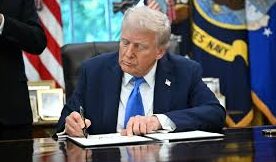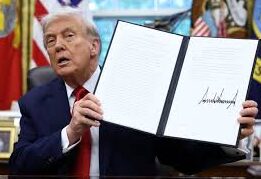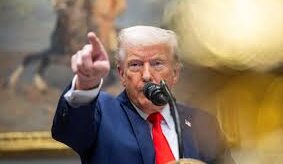President Donald Trump’s rearmost visa policy has set off a storm in the tech world. A new$ 100,000 figure for H- 1B visas, used to hire foreign workers, has drawn sharp review from directors, entrepreneurs, and investors, numerous of whom formerly supported Trump’sre-election crusade.
Assiduity leaders advise the change could add millions in redundant costs for companies and hit startups especially hard. lower enterprises may struggle to go these visas, which are a crucial part of their hiring strategy.
The rollout was messy. Starting late Friday, Trump and his platoon blazoned that enterprises would be charged$ 100,000 per temporary H- 1B employment visa, extensively used by companies like Amazon, Microsoft, and Meta. Confusion grew until the White House clarified that the figure would be a one- time charge, not periodic, and would not apply to current visa holders, indeed those travelling abroad at the time.
Amazon, Microsoft, and Meta did n’t incontinent respond to requests for comment. utmost major tech directors, who have cultivated close ties to the Trump administration since his return to office, have stayed quiet so far.
Some, still, are speaking out. “ America’s edge has always been that we attract smart, ambitious people from far and wide, ” said Esther Crawford, a former Twitter superintendent and now a director of product operation at Meta, on LinkedIn. “ High- professed emigrants do n’t take from us, they make with us. Some of the stylish associates in my career have been H- 1B holders chasing their own American dream. ”
Trump has taken a harder line on immigration since returning to office, tensing border security and conducting raids substantially aimed at undocumented, low- pay envelope workers. Just lately, a U.S. Immigration and Customs Enforcement raid at a Hyundai battery factory in Georgia sparked watchfulness from South Korean officers, raising questions about the U.S. – Korea relationship.
Economists at Berenberg advised that the visa figure hike could further strain a U.S. labor request formerly weakened by Trump- period trade programs. They noted that while artificial intelligence might ease some staffing gaps, advanced costs could squeeze companies and eventually their guests. “ By making it veritably precious for companies to attract foreign gift, and by forcing some transnational scholars to leave the country after scale, the brain drain will weigh heavily on productivity, ” they wrote.
The advertisement also caused chaos for trippers
. Some workers refused to board breakouts abroad. Others rushed home on company orders before the White House clarified the policy. “ My heart goes out to all the families and individualises anxious over their futures following the abrupt and chaotic advertisement of H- 1B visa changes, ” wrote Andrew Ng, author of Deep Learning AI, on LinkedIn. “ America should be working to attract further professed gift, not produce query that turns them down. ”
Not everyone opposed the move. IBM Vice Chairman Gary Cohn, who formerly led the National Economic Council under Trump, told CBS News the new freights were a “ good idea ” to attract workers with the most precious chops. Netflix Chairman Reed Hastings echoed the sentiment on X, saying advanced costs would insure visas are reserved for “ veritably high value jobs ” and give further certainty to those who have them.
Others prognosticated the contrary effect. David Seidman, head of platform security at fin tech establishment Plaid, advised on LinkedIn that “ at least one ” major tech company might stop hiring for those positions in the U.S. and rather expand operations in India or Canada.






